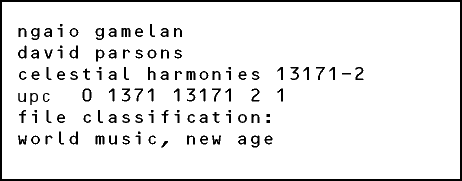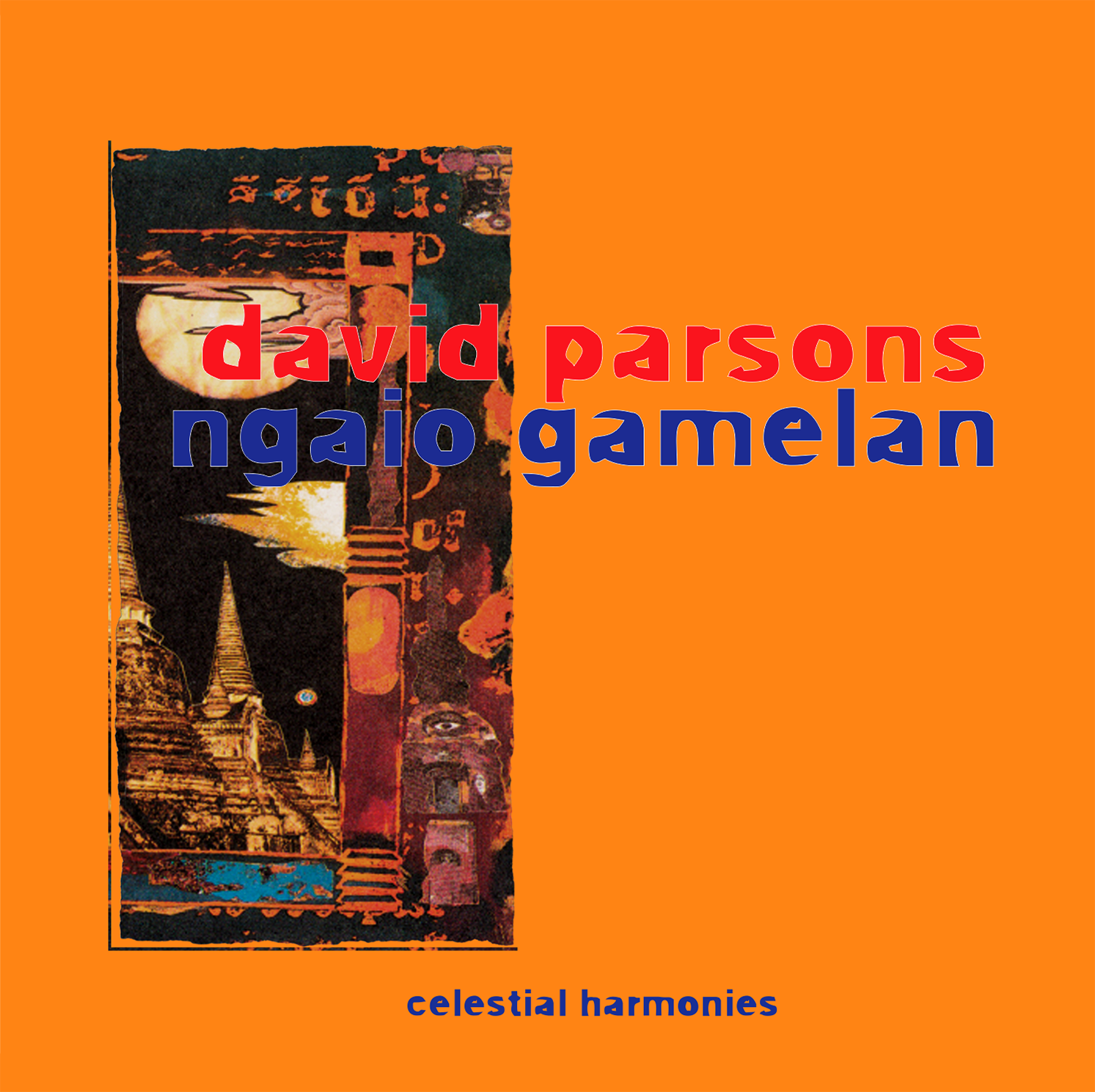 |
|||||||||||||||||||||
 
the projectLongtime fans of David Parsons' sampling and synthesizer
originals of the 1980s will be pleased with the musician's return
to the studio. After a long hiatus as a composer/performer, Parsons'
Ngaio Gamelan is unmistakably his magnum opus. To date that
is, we are optimistic Parsons has more to come.
From 1992 until 1997, David Parsons traveled the world as a producer for Celestial Harmonies. After The Music of Cambodia (19902), The Music of Vietnam (19903), The Music of Armenia (19909), The Music of Bali (19905), and the award–winning The Music of Islam (19907) in addition to several recordings from India and Indonesia, this is the transfigured music of a reborn composer/performer—the result of an exemplary multi–cultural existence on four continents drawing from the inspiration of hundreds of fellow musicians and music traditions from around the globe, recorded in Wellington, New Zealand. Tracks one, two and four use sampled phrases from the Armenia project. Track six uses sampled sarangi phrases from a recording made in Pakistan. Tracks three and five are new compositions by Parsons, without any sampling. Most tracks use Indian percussion instruments played by Parsons. The phrase samples have dictated musical scales resulting in the gamelan accompaniment being based on scales otherwise unheard of in Indonesian music. Although Parsons did not strictly follow any musical traditions, as that was not his intention, this is rather an experiment attempting to produce a hybrid—a kind of east-west fusion the artistFrom his homeland in New Zealand, David Parsons travels
frequently to Asia for spiritual and musical inspiration. After collecting
musical samples and studying different musical and cultural traditions,
Parsons returns to his studio to integrate these influences with his
own experiences. In the process, he bridges disparate elements with
seamless grace, and creates a unique musical affirmation of our common
humanity and cultural endowment. Parsons has been a student of Indian
music, studying with Dr. Krishna Chakravarty—Ananda (17046),
Dancing to the Flute (13135) and Circular
Dance (13133).
Parsons' recordings make the Eastern sensibility comprehensible to the Western listener and formulate a unique and captivating new expression. To Parsons' credit as a musician, composer and performer, he has evolved into a rare and highly acclaimed producer of cultural music traditions. His work is often featured in film, television and radio scores, and continues to be widely praised by reviewers. biographydiscographytracklist
|
|||||||||||||||||||||
|
|
|||||||||||||||||||||
 |


